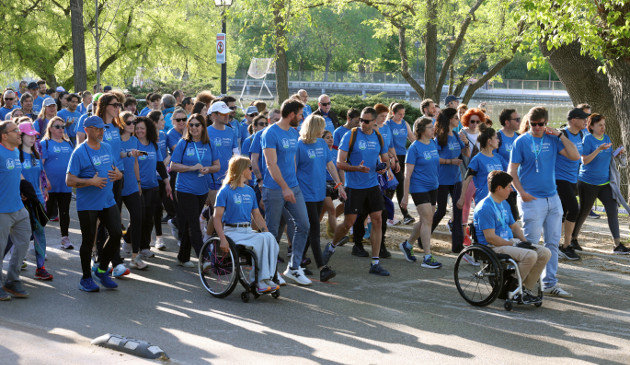Written by former Bupa Global and UK CEO, David Hynam
We’re all trying to adjust to different ways of working and are coming to terms with the new world that we’re faced with. Whatever our circumstances, our day to day lives are very different right now and, for many, that will be challenging in all sorts of ways.

I recently contributed to some materials put together by PwC to share a few reflections on how Covid-19 has led us to work differently.
Some people will be embracing the changes and finding the extra time spent at home rewarding and fulfilling. Others will be finding it more difficult working in demanding roles, separated from loved ones or juggling work and caring responsibilities. Some will be desperate for the restrictions to be lifted; others more fearful of what happens when the lockdown ends. Some of us will be coping better than others.
What’s clear to me is that none of us should assume how others are handling it and coping through it.
Being able to prioritise our own mental health and manage our energy levels will, for many, be right at the heart of all this. I’m under no illusions – it is an enormous privilege to hold the roles I have, particularly at such a critical time. My experiences are put into perspective when I see what key workers across the country do every day - particularly our people right across our business who care for our residents, patients and customers
In theory, at least, I’m trying to set a decent example to my team by doing the things that we all know we should be doing - taking breaks away from the screen, trying to get out to do some exercise - but it isn’t always easy to get the balance right. We all know that we need to switch off and get more sleep but sometimes even that is easier said than done.
Managing our energy is a key part of being resilient. My energy comes from being around people and sharing thoughts, ideas, opinions - so it’s strange having so little human contact. I’m used to being surrounded by people and, while they’re still at the end of a call or email, I won’t pretend that I have made it the easiest of adaptations.
Something that I have become increasingly aware of, is my own appreciation of those who’ve taken time to check in – I’m not a natural sharer of how I’m feeling (I am much better with a list of tasks) and I’ve realised that the fact someone asks about it does make a difference. I’m trying do the same for others, albeit probably less eloquently. Whether taking five minutes to discuss how colleagues are actually feeling or finding time to FaceTime friends – the meaningful connections are still there.
I’m also finding it’s more important than ever to proactively connect with my team. Small things like having video calls (camera on) can make such a difference to engaging and being ‘present’. At this time when we’re apart from each other, it’s vital to maintain these connections and do things to really encourage collaboration. This can help us to see things from a different perspective and provide valuable insight which be might lacking when we’re on our own. It’s easy to think the only view that matters is your own if you don’t have anyone else’s….
Working remotely shouldn’t mean that we’re isolated from each other.
Another lesson I’ve learnt is not to be surprised by how quickly things are evolving. Having clear priorities is important, yet so is recognising that they can change quickly. What seemed most important yesterday can rapidly switch.
Finally, it’s been really positive to see people stepping up and taking the opportunity to lead in these unprecedented circumstances - I’ve seen emerging leaders at all levels introducing new ideas and ways of working. We need to ensure that we do not lose that agility.
As an organisation, we’ve sought to raise awareness of mental health and now, more than ever, we want to encourage wider recognition of the importance of wellbeing and resilience. Taking time as leaders to encourage greater engagement and remote collaboration and having regular check-ins with our teams will all help to maintain our performance and help our people succeed.
The report from PwC contains some great insight on remote working, managing teams and supporting mental health. It’s really important that we share expertise like this so we can learn from how different organisations are managing the crisis and help us to continue to make improvements.
Bupa guest author



